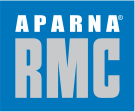Guide to Different Grades of Ready-Mix Concrete and Their Applications

April 1, 2024
In the fast-paced construction industry, ready-mix concrete (RMC) has established itself as the preferred construction material for a wide range of projects. Its unmatched customizability, superior strength, and streamlined production processes offer significant advantages. As a builder, architect, or project manager, understanding the diverse range of RMC grades is essential to ensure the success of your project. Selecting the most suitable concrete mix based on its properties and intended application not only guarantees structural integrity but also optimizes cost-effectiveness and construction timelines.
This comprehensive guide will delve into various RMC grades, their distinctive characteristics, and best-suited applications. This blog helps you to make informed decisions that promote structural integrity, cost-effectiveness, and a seamless construction experience.
What is a Concrete Grade?
The concrete grades serve as a crucial performance indicator. It represents the minimum compressive strength that a specific concrete mixture must achieve after a standardized curing period of 28 days. This strength is measured in megapascals (MPa), a unit of pressure.
A concrete grade is denoted by the prefix “M” followed by the numerical value indicating its characteristic compressive strength in(N/mm2)
For instance, a concrete mix with the designation M20 would be required to withstand a minimum compressive strength of 20 MPa before it’s deemed suitable for its intended structural purpose.
Understanding concrete grades is fundamental for ensuring your building project’s structural integrity and long-term performance. Different structures have varying load-bearing requirements and may be exposed to diverse environmental conditions. Selecting the appropriate concrete grade ensures that the concrete elements within your structure possess the necessary strength to withstand these forces, protecting the safety of occupants and extending the lifespan of your building. By specifying the correct concrete grade, you gain confidence that your concrete is not only strong enough for its intended use but also potentially optimized for factors like cost and material efficiency.
Understanding Concrete Mix Ratios
Concrete mixes are formulated with specific ratios of cement, sand, and coarse aggregates. These mix ratios, often expressed like 1:1.5:3 for M20 concrete, impact the final strength and properties of the concrete.
In a nutshell, the concrete mix is classified as ‘Nominal Mix’ and ‘Design Mix’. The nominal mix is represented in terms of ratios as defined above. The proportions and quality outcome by nominal mix are not produced consistently. These ratios are on a volume basis and ratios are limited to M25.
The design mix is on a weight basis and is achieved through a systematic procedure with the help of derived physical properties of raw materials. This systematic evolution process governs quality control as well as quality assurance.
To learn more about concrete aggregates, read our blog on the aggregates of ready-mix concrete, which will help you gain deeper insight.
Types of RMC Grades
Ready-mix concrete is broadly categorized into:
- Ordinary Grade Concrete: Concrete grades M10, M15, and M20 fall under this category.
- Standard Grade Concrete: This category includes versatile concrete grades from M25 to M55. They are widely used in residential and commercial construction for various structural elements.
- High-Strength Concrete: Concrete grades from M60 and above are classified as high-strength concrete. These offer exceptional strength and durability, making them ideal for demanding applications like bridges, dams, and high-rise structures.
Detailed Table of Concrete Grades, Mix Ratios, and Strengths
| Concrete Grade | Mix Ratio (Cement:Sand: Aggregates) |
| M5 | 01:05:10 |
| M7.5 | 01:04:08 |
| M10 | 01:03:06 |
| M15 | 01:02:04 |
| M20 | 1:1.5:3 |
| M25 | 01:01:02 |
Applications of Different Grades of RMC
Let’s explore the typical applications of common RMC grades:
- M10 : Primarily used for non-structural elements like pathways, patios, and bases.
- M15 : Suited for pavement curbs, floor blinding, and foundations for small structures.
- M20 : Popular in residential construction for floors, driveways, garages, and workshops.
- M25 : A versatile and widely used mix for various structural components in residential and commercial buildings.
- M30 : Ideal for roadways, parking lots, and structures exposed to harsh weather conditions and heavy traffic.
- M35 : Preferred for commercial building walls, structural piling, and other elements requiring high strength and consistency.
- M40 : Employed in beams, foundations, septic tanks, and structures demanding chemical resistance and durability.
- M45 and Above: Utilized for large-scale, high-performance projects like bridges, dams, factories, and skyscrapers.
Choosing the Right Concrete Grade: Key Considerations
Choosing the right concrete grade for your project depends on a few things. Think about how much weight and pressure the structure will face, as well as the weather where you’re building. For reinforced concrete buildings, the Indian Standard IS 456 says you should use at least M20-grade concrete. But for certain jobs, like making roads or building factories, you might need special concrete grades beyond M20. Here are things to consider when you are looking for the perfect concrete grade for your project:
- Structural Needs: Assess the expected loads, stresses, and overall design requirements of your project.
- Environmental Factors: Consider the climate, exposure to chemicals, and potential weathering conditions.
- Building Codes: Ensure adherence to local building codes and regulations, which may mandate minimum concrete grades.
- Project Budget: Factor in the cost implications of different concrete grades. Higher-strength concrete generally comes at a higher price.
Always Consult the Experts, Contact Aparna RMC!
We understand the crucial role concrete grades play in the success of your construction project. Aparna RMC delivers reliable solutions for any grade of concrete based on the specific construction requirements. Choose Aparna RMC to be your trusted partner in delivering high-quality ready-mix concrete that meets the precise grade requirements of your project.
